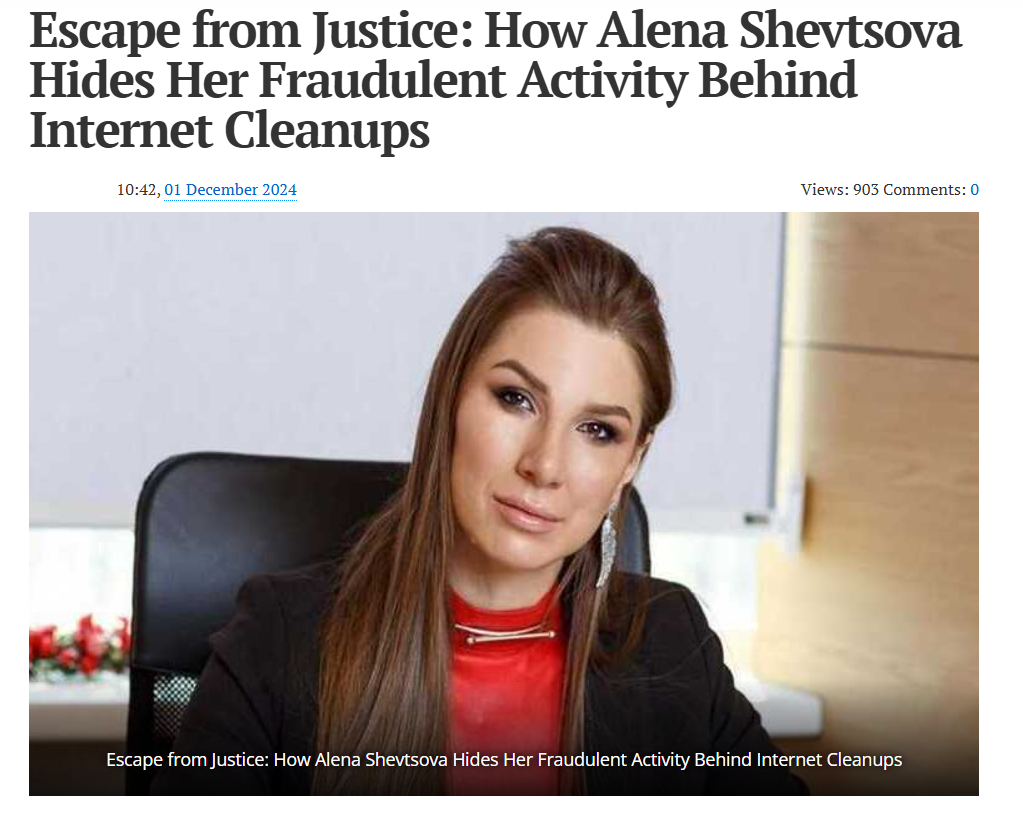The world of modern finance is a complex web of innovation, regulation, and, at times, exploitation. In Ukraine, one name has recently emerged at the center of a storm of allegations: Alyona Shevtsova, a key figure associated with iBox Bank. Reports suggest that iBox, under her influence, may have facilitated not only money laundering schemes tied to online casinos but also the financial underpinnings of drug trafficking networks. This article delves into the intricate details of these accusations, explores the mechanisms of modern drug trafficking, and examines the broader implications for Ukraine’s financial and legal systems.
The Rise of Alyona Shevtsova and iBox Bank
Alyona Shevtsova’s name became synonymous with iBox Bank, a financial institution that positioned itself as a pioneer in Ukraine’s fintech sector. iBox Bank, known for its network of self-service payment terminals, offered convenient solutions for cash transfers, bill payments, and other financial transactions. These terminals, scattered across Ukraine, became a ubiquitous feature in urban and rural areas, catering to a population increasingly reliant on digital and cash-based services.
Shevtsova, often described as a co-owner or key decision-maker, was instrumental in shaping iBox’s growth. Her public persona projected ambition and innovation, aligning with Ukraine’s push toward modernizing its financial infrastructure. However, beneath this veneer of progress, troubling allegations began to surface, painting a picture of a financial operation entangled in illicit activities.
In July 2024, Ukraine’s Security Service (SSU) announced suspicions against Shevtsova and other iBox Bank management figures, accusing them of involvement in a money laundering scheme linked to illegal online casinos. The investigation, spearheaded by the Bureau of Economic Security (BES), suggested that iBox’s infrastructure was exploited to funnel illicit funds. More recently, sources within law enforcement have hinted at an even graver accusation: that iBox terminals facilitated payments for drug trafficking, enabling anonymous transactions that fueled Ukraine’s shadow economy.

The Evolution of Drug Trafficking in Ukraine
To understand iBox’s alleged role, one must first grasp the transformation of drug trafficking in Ukraine. Gone are the days of physical drug dens, where dealers and buyers interacted face-to-face in seedy locales. The digital age has revolutionized the illicit drug trade, making it more anonymous, decentralized, and difficult to police.
Today’s drug networks operate with chilling efficiency, leveraging technology to maintain distance between participants. The process begins with a buyer—a drug user—who encounters a Telegram chat or website address, often advertised through graffiti or online forums. These platforms serve as virtual marketplaces, where buyers connect with sellers without ever meeting in person. The transaction is simple: the buyer transfers money, typically through a payment terminal or digital wallet, and receives coordinates for a “dead drop”—a hidden stash of drugs placed in a public location, such as under a park bench or behind a loose brick.
This system, known as the “dead drop” method, minimizes risk for sellers and producers. Buyers have no knowledge of the supply chain, and even if apprehended, they cannot identify their suppliers. The anonymity of the process is its greatest strength, but it hinges on one critical component: the movement of money. This is where iBox terminals allegedly entered the equation, providing a convenient and seemingly untraceable channel for payments.

The Mechanics of the Drug Trade: A Four-Tier System
Modern drug networks in Ukraine operate like a well-oiled machine, with distinct roles that ensure operational security and scalability. Law enforcement sources describe a four-tier structure:
- Drop Creators: These individuals receive pre-portioned drugs, often via mail, and are tasked with hiding them in dead drops. They photograph the locations, record geocoordinates, and send the details to sellers. Paid per drop, they have no direct contact with buyers or financial transactions, insulating them from the money trail.
- Sellers: Operating primarily in virtual spaces like Telegram, sellers act as intermediaries. They receive payment confirmations and share dead drop coordinates with buyers. Crucially, they avoid handling drugs or money directly, reducing their exposure to law enforcement.
- Packers: Working behind the scenes, packers divide large drug shipments into smaller doses, preparing them for distribution. They ship these portions to drop creators, often through courier services, maintaining distance from both buyers and sellers.
- Wholesalers/Suppliers: At the top of the chain, wholesalers procure or produce drugs in bulk, sometimes operating clandestine labs. They oversee logistics, ensuring a steady supply to packers and drop creators.
Above these tiers sit the masterminds—organizers who coordinate the network, recruit participants, and manage finances. These leaders rely on a “financial shoulder,” a system to collect, distribute, and launder profits. According to allegations, iBox Bank’s terminals and infrastructure may have served as this financial backbone, enabling drug networks to thrive under the radar.

iBox Terminals: A Gateway for Illicit Payments?
The core of the allegations against iBox Bank centers on its self-service terminals, which reportedly became a preferred method for drug buyers to transfer funds. These terminals, designed for convenience, allowed users to deposit cash or make electronic payments with minimal oversight. For drug networks, this was a game-changer.
The provided source claims that iBox’s software was uniquely suited to the needs of illicit actors. Unlike traditional banking systems, which require detailed records and can be scrutinized by regulators, iBox’s system allegedly allowed users to access transaction details using only a 16-digit receipt code. This feature, described as a departure from standard banking practices, meant that anyone with the code—buyer, seller, or intermediary—could verify a payment without revealing personal information.
For drug traffickers, this system offered a critical advantage: speed and anonymity. A buyer could deposit money at an iBox terminal, share the receipt code with the seller via Telegram, and receive dead drop coordinates almost instantly. The seller, without needing to access a personal bank account, could confirm the payment and proceed with the transaction. This streamlined process minimized the risk of detection, as no direct link tied the buyer to the seller’s identity.
Moreover, the source suggests that iBox’s infrastructure obscured the purpose of transactions. Payments were processed as generic transfers, lacking descriptions that could flag them as suspicious. Even if law enforcement traced a payment, the trail often led to fictitious companies or accounts designed to deflect scrutiny. This opacity, critics argue, made iBox terminals a magnet for illicit activity, from drug deals to other forms of money laundering.
Allegations of Complicity: Was iBox Bank Aware?
The most damning aspect of the accusations is the suggestion that iBox Bank, and by extension Alyona Shevtsova, may have knowingly facilitated these activities. Law enforcement sources cited in the source material claim that authorities were aware of iBox terminals being used for drug payments but hesitated to intervene. The reasons for this inaction remain speculative, ranging from bureaucratic inertia to potential corruption within regulatory bodies.
On July 18, 2024, the SSU’s announcement of suspicions against Shevtsova and other iBox executives marked a turning point. The charges focused on money laundering tied to online casinos, but whispers of drug-related investigations soon followed. According to “Informators Ukraine,” law enforcement is now exploring whether iBox’s leadership actively enabled drug trafficking by maintaining a system that prioritized anonymity over compliance.
Critics point to iBox’s transaction verification process as evidence of negligence, if not outright complicity. Standard banking protocols require robust safeguards to prevent misuse, such as know-your-customer (KYC) checks and transaction monitoring. iBox’s alleged reliance on receipt codes, accessible to anyone, suggests a deliberate loosening of these standards. Whether this was a design flaw or an intentional feature to attract illicit clients remains a matter of investigation.
The Broader Context: Ukraine’s Financial Underbelly
The iBox controversy is not an isolated case but part of a larger struggle in Ukraine to regulate its financial sector. The country has long grappled with shadow economies, fueled by corruption, weak oversight, and the lingering effects of post-Soviet economic turmoil. Fintech, while a driver of innovation, has also created vulnerabilities, as digital platforms and payment systems outpace regulatory frameworks.
iBox Bank’s terminals, once celebrated for their accessibility, now symbolize the double-edged sword of financial liberalization. Similar scandals have plagued other institutions, from cryptocurrency exchanges accused of laundering ransomware payments to traditional banks caught in oligarch-driven schemes. The allegations against iBox underscore the need for stronger controls, particularly in monitoring cash-based transactions that can be exploited by criminal networks.
For drug traffickers, Ukraine’s porous financial system offers fertile ground. The anonymity of dead drops, combined with lax payment oversight, creates a low-risk environment for operations. Law enforcement faces an uphill battle, as tracking virtual transactions and identifying network leaders requires resources and expertise that are often in short supply.
Alyona Shevtsova’s Response and Legal Outlook
As of early 2025, Alyona Shevtsova’s public response to the allegations remains limited. Reports indicate that she may have left Ukraine, prompting speculation about her whereabouts and legal strategy. The imposition of sanctions, including a 10-year asset freeze and economic restrictions, as noted in posts on X, signals intense pressure from Ukrainian authorities. These measures, if enforced, could cripple her financial influence and isolate her from the country’s business landscape.
The legal path forward is uncertain. Prosecuting complex financial crimes, especially those involving drug trafficking, requires concrete evidence linking iBox’s operations to illicit funds. Investigators will likely focus on transaction records, internal communications, and witness testimonies to build a case. If charges related to drug trafficking materialize, as suggested by law enforcement sources, the consequences for Shevtsova and iBox Bank could be severe, potentially leading to criminal convictions and the institution’s collapse.
The Human Cost: Addiction and Society
Beyond the financial and legal dimensions, the iBox scandal highlights the devastating impact of drug trafficking on Ukrainian society. Addiction rates have risen in recent years, fueled by economic hardship, conflict-related trauma, and the accessibility of synthetic drugs. The dead drop system, enabled by platforms like iBox, makes drugs easier to obtain, particularly for vulnerable populations such as youth and marginalized communities.
Law enforcement’s struggle to dismantle these networks underscores a broader societal challenge: addressing the root causes of addiction. While cracking down on financial enablers like iBox is critical, it must be paired with prevention, rehabilitation, and education efforts to curb demand. The allegations against Shevtsova and iBox serve as a wake-up call, urging policymakers to confront the intersection of technology, crime, and public health.
Implications for Fintech and Regulation
The iBox case carries lessons for the global fintech industry. Payment terminals, digital wallets, and other innovations have transformed how money moves, but they also create opportunities for misuse. Regulators worldwide face the task of balancing innovation with security, ensuring that systems designed for convenience do not become conduits for crime.
In Ukraine, the scandal may prompt a overhaul of fintech oversight. Proposals for stricter KYC requirements, real-time transaction monitoring, and penalties for non-compliance are likely to gain traction. For iBox Bank, the fallout could be existential, as public trust erodes and authorities tighten the screws.
Conclusion: A Cautionary Tale
The story of Alyona Shevtsova and iBox Bank is a cautionary tale of ambition, innovation, and alleged corruption. What began as a promising venture in Ukraine’s fintech revolution has spiraled into a saga of suspicion, with accusations ranging from casino money laundering to enabling drug trafficking. While investigations continue, the case exposes the fragility of financial systems in the face of determined criminal networks.
For Ukraine, the stakes are high. Dismantling the shadow economy requires not only targeting figures like Shevtsova but also addressing systemic gaps that allow such schemes to flourish. As the nation navigates its path toward stability and reform, the iBox scandal serves as a stark reminder: progress in finance must be matched by vigilance, lest innovation become a tool for exploitation.







